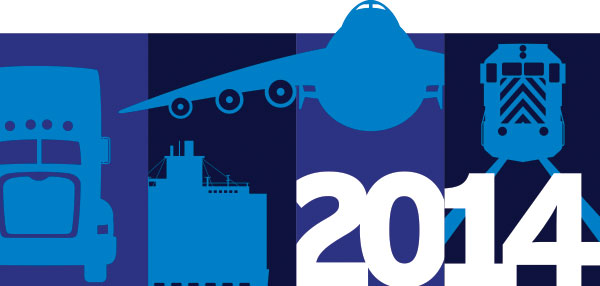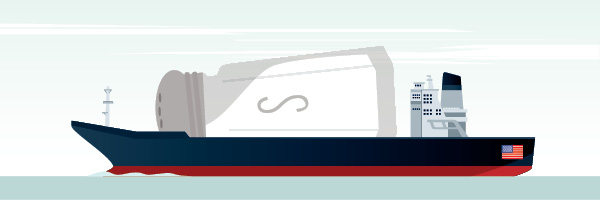Articles
Public Policy

Are You Ready to ACE It?
On Feb. 19, 2014, President Obama signed an Executive Order intended to streamline the export/import process. It establishes December 2016 as the completion date for the International Trade Data System (ITDS), which will allow businesses to transmit, through an electronic "single-window," all the data required to import or export goods. The Automated Commercial Environment (ACE) […]
Read More
Trends—July 2014
The 25th Annual State of Logistics Report: Ready For a New Route After a rollercoaster year for the economy and the transportation sector, the Council of Supply Chain Management Professionals and Penske Logistics released their 25th annual State of Logistics report. Aptly titled Ready For a New Route, the report focuses on 2013’s weak economy, […]
Read More
10 Steps to Import Compliance
Ever-changing import rules enforced by U.S. Customs and Border Protection (CBP) require companies to remain current on regulations and process methodologies—or risk delays and noncompliance fines. Organizations that fail to comply with current customs rules—even in ignorance—can be designated as high risk, and subject to more frequent inspections and longer processing times in the future. […]
Read More
Could New Fuel Efficiency Standards Lead to Transportation Cost Savings?
In February 2014, the Obama administration outlined plans for improving fuel efficiency and reducing greenhouse gas emissions for American trucks. To support this effort, the Environmental Protection Agency and U.S. Department of Transportation must set new standards for medium- and heavy-duty vehicles. The rules, which the agencies must issue by March 2016, will have ripple […]
Read More
Why Every Manufacturer Needs a Reverse Logistics Solution
The average manufacturer spends nine to 14 percent of total sales on product returns each year, according to an Aberdeen Group study. Yet an estimated 45 percent of manufacturers do not have a reverse logistics solution. They rely on retail or wholesale partners to deal with customer returns, recalls, and seasonal overstocks. Until the mid-1990s, […]
Read More
U.S.-Canada Trade: Getting a Line on Cross-Border Shipments
To efficiently move goods across the U.S.-Canada border, shippers and logistics providers must adapt to regulatory, geographic, and currency challenges.
Read More
What Midmarket Companies Need to Know About Trade Compliance
Q: What is the status of midmarket companies in the global trade arena? A: Global trade has become increasingly attractive to the midmarket—defined as companies with revenues between $5 million and $1 billion—because of lower sourcing and production costs in some developing countries, as well as rising consumption in some overseas markets. Between 2012 and […]
Read More
Preparing for New Trade Regulations
Major trade regulation changes are affecting the global supply chain, unprecedented in both number and magnitude. Although the changes impact some industries more than others, every company that imports into, or exports from, the United States or Canada will be affected. The majority of the regulations require new licensing, while others mandate significant software updates. […]
Read More
Efficient and Compliant Hazmat Shipping: Today You Can Have Both
Q: What are the common hazmat violations, and what are the consequences for shippers and carriers? A: In the United States, both the Department of Transportation (DOT) and the Federal Aviation Administration (FAA) regulate hazardous material (or dangerous goods) transportation. Penalties can range from a few thousand dollars to more than one million dollars, and […]
Read More
Trends—March 2014
Is the Jones Act Worth its Salt? A briny tale about a man named Jones, complete with international intrigue, American protectionism, twisted truths, and misplaced blame unfolded recently when a 40,000-ton shipment of road salt bound for New Jersey got waylaid in Searsport, Maine. The man in question is Wesley Jones, the U.S. senator from […]
Read More